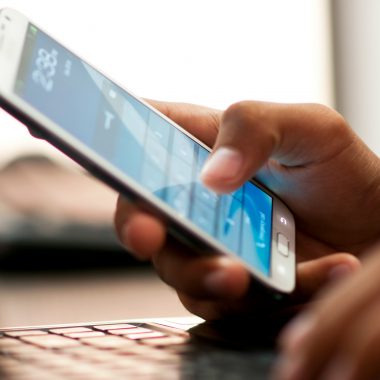Shadow health secretary Diane Abbott has questioned the Government’s ‘overreliance’ on technology to improve acccess to general practice and saving money.
Ms Abbott said she worries that moving to patients accessing their GP through Skype and smartphone apps will exclude elderly patients, and questioned the GP Forward View commitment of millions in funding to roll out these new modes of consultation.
She expressed her concerns when speaking at an RCGP fringe meeting on digital access to general practice at the Labour Party’s annual conference last night.
Her comments come as health secretary Jeremy Hunt announced radical plans earlier this month for patients to be able to register with GPs and get medical advice through a smartphone app by the end of next year.
Use of technology also forms part of NHS England’s GP Forward View plans to free up 10% of GP practice time through different ways of working.
She said: ‘It is really important to remember that… much of the work of GPs is to do with elderly people [and] I struggle to conceive of elderly people… who could successfully engage with general practice through tech.’
She also thinks accurate diagnosis of health conditions could suffer, drawing on her experience of her MP constituency clinics, where ‘people come in to see you with problem A, and it is only let’s say eight minutes on, when they are relaxed, and they feel they have engaged with you personally, that they actually come out with problem B, which is the real thing that is concerning them’.
She said: ‘But if these elderly people are having to access [GPs] on Skype, or through an app, they don’t go through that cycle of trusting the person, engaging with the person, and what worries me is that an overreliance on tech, in place of actually going to see a GP, it will be difficult for precisely that group of people.
‘I think of my constituents and I think that they would find it difficult. They would not be able to engage. They value that one to one relationship, and you would miss things. Even how they carry themselves, even the look in their eyes. You would miss things which might help you to get to diagnosis.’
Ms Abbott also expressed concern that the NHS does not have sufficient data protection in place.
She said: ‘It is a concern to me that if we are going to encourage people to use online, and to share their data, we have to have much more assurance about data security [because] health information is incredibly sensitive, and one worries about sharing sexual health data with a service provided by Virgin and then Virgin using that data to market other products to the same people.
‘So I am concerned about security of data, I am concerned about people’s willingness to entrust apps with sensitive data.’
RCGP honorary secretary Professor Nigel Mathers, who organised the fringe meeting, admitted that his own patients would be reluctant to use online consultations.
He said: ‘I work in a tough, deprived area of Sheffield, and I would say a minority would want to use these ways of access… they are not a very trusting lot… and they feel very sort of embattled very many of my patients.
‘They trust a one-to-one consultation and I do think that is the gold standard, but all these other methods can be used to supplement that. I am guessing 10-15% would be happy to use these other ways of accessing the practice but the majority would still want face to face.’

















